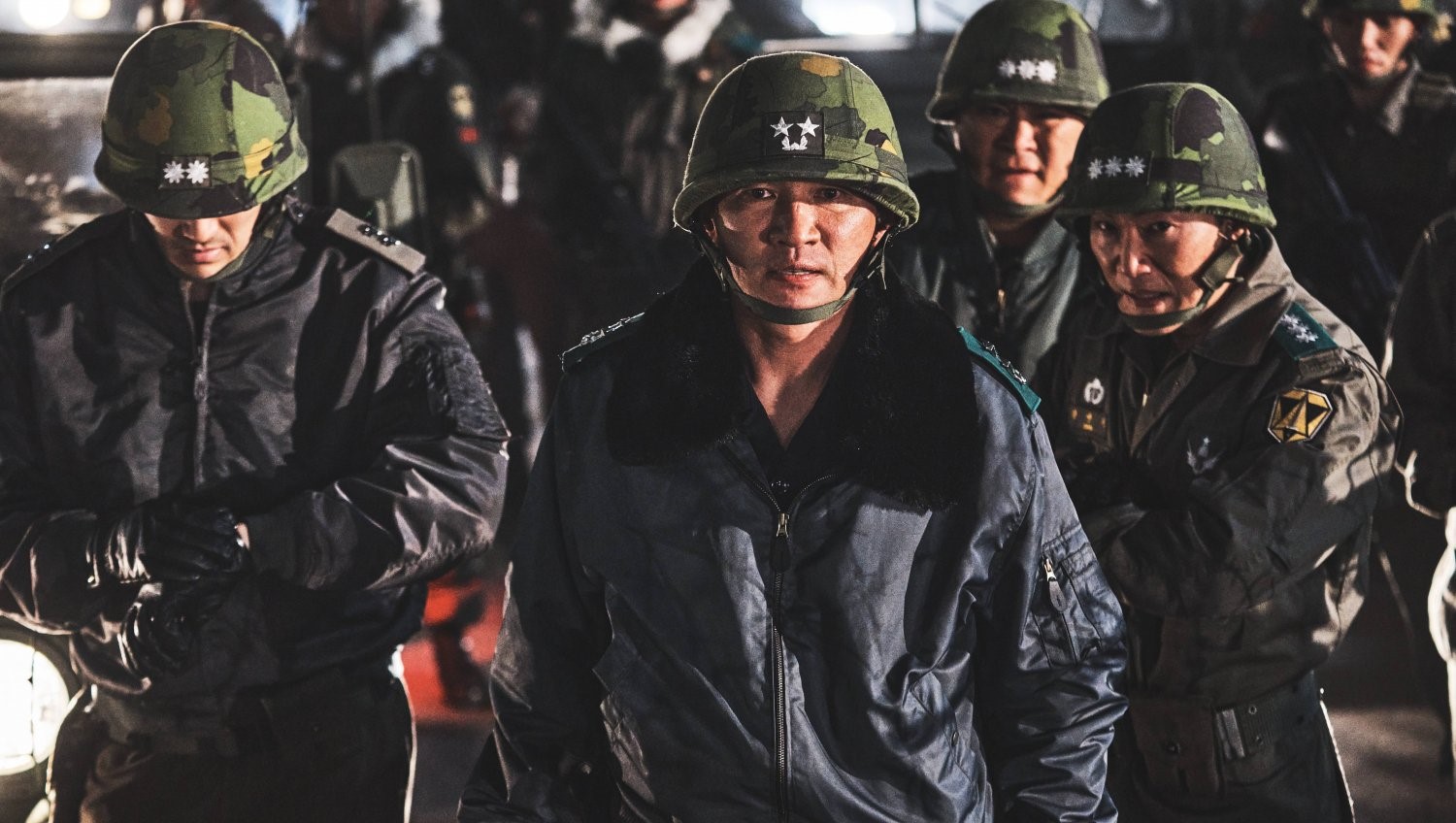‘12.12: The Day’ plays out in the context of the December 12, 1979, military coup in South Korea, referred to as the ‘Coup d’état of December Twelfth’

Hwang Jung-min (front) as Chun Doo-gwang in a scene still from '12.12: The Day.' Photo courtesy of HanCinema.
12.12: The Day (2023) is South Korea’s submission at the 97th Academy Awards. Directed by Kim Sung-su, the period piece has heavyweight Korean actors—Hwang Jung-min, Jung Woo-sung, Lee Sung-min, Park Hae-joon, and Kim Sung-kyun—in starring roles.
The “Coup d’état of December Twelfth” or the 12·12 Military Insurrection, an armed uprising on December 12, 1979, in South Korea, provides the context for the historical drama film. In South Korean history, this military coup, along with the “Coup d’état of May Seventeenth,” ushered in the starting point of the collapse of the Fourth Republic of Korea (1972–81).
According to an earlier article by The Korea Times, the Korean Film Council (KOFIC) zeroed in on 12.12: The Day as an Oscar entry for its gripping narrative, phenomenal performances, superb workmanship, and perceptive depiction of actual events.
President Park Chung Hee’s assassination and the subsequent events are central to 12.12: The Day—we encounter an outbreak of staggering political and social upheaval in South Korea when, in response to the murder, a martial law regime comes into effect. Park, the third President of South Korea—in a tragic twist of events, was killed on October 26, 1979—while he was in the middle of a dinner at the safe house of the Korean Central Intelligence Agency (KCIA) close to the Blue House presidential compound in Seoul. The tragedy had far-reaching effects on the nation and its citizens.
A rebellion led by security commander Major General Chun Doo-gwang (Hwang Jung-min) and his loyal men turns up in the film, reflecting the repercussions of the incident. Doo-gwang and the dogged Lee Tae-shin (Jung Woo-sung), who’s in charge of the Capital Garrison Command, clash as a result of Tae-shin’s staunch opposition to military intervention in politics.
The situation is such that the military officials hesitate to make judgments and the minister of defense is not to be found as the two men’s disagreement escalates, and amid this mayhem, the time takes an unanticipated turn.
Filmmaker Kim Sung-su made 12.12: The Day marrying fiction with a real occurrence that remains with him as a memorable experience. Korean media has it that he was in his teens when Kim, who was living in the neighborhood where the military coup happened on December 12, 1979, heard gunfire coming from the Army Chief of Staff’s place. He recalled the experience at the film’s press conference, saying that while he was terrified when he heard firing that day, he also became intrigued to find out what exactly was happening. Years later, he translated that vivid memory into celluloid.
Whether the film will make it to the shortlist for the Best International Feature Film category at the upcoming Oscars is yet to be announced.
The visual signals in the artwork—together with a catchphrase, ‘The game isn’t over yet,’ effectively…
The film arrives Oct. 4
The series approaches story in the timbre of a great Victorian novel, something we’ve lost…
Mumbai artist Aiden Aziz previously released ‘The World Is Mine’ and ‘Rakshak’ with pop artist…
Bad Boy founder is currently being held without bail following his indictment on sex-trafficking and…
The singer opens up to Rolling Stone about his recovery after a brutal accident this…